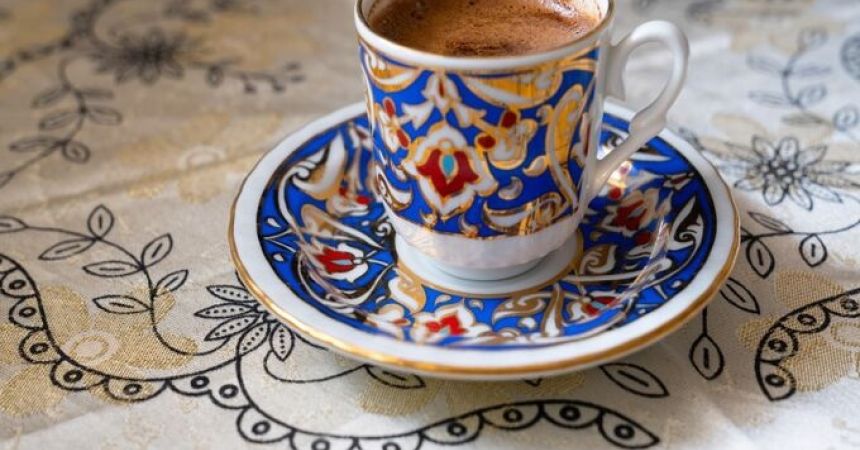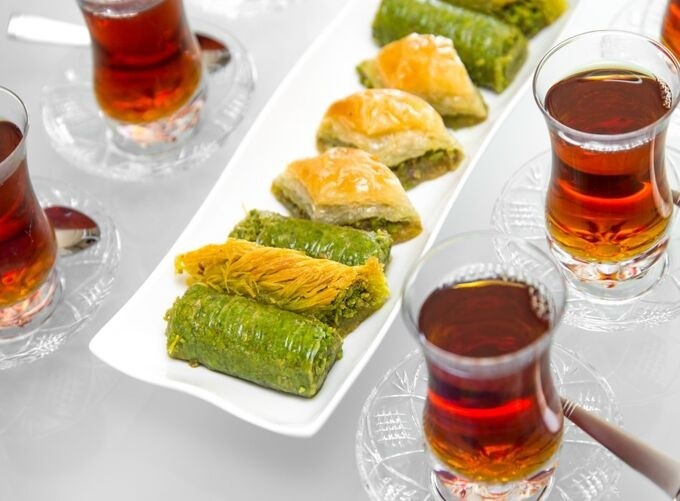
Turkish Coffee | A Cultural Ritual Beyond a Drink
 Turkish coffee is not just a beverage; it’s a cultural institution, a ritual, and a symbol of hospitality that has been cherished for centuries. From its meticulous preparation to its unique serving style, Turkish coffee is a reflection of the rich tapestry of Turkish heritage Tours. This blog delves into the history, tradition, and significance of Turkish coffee, offering insights into why it’s much more than just a drink.
Turkish coffee is not just a beverage; it’s a cultural institution, a ritual, and a symbol of hospitality that has been cherished for centuries. From its meticulous preparation to its unique serving style, Turkish coffee is a reflection of the rich tapestry of Turkish heritage Tours. This blog delves into the history, tradition, and significance of Turkish coffee, offering insights into why it’s much more than just a drink.
A Historical Brew
Origins and Evolution
Turkish coffee traces its origins back to the 16th century when it was introduced to the Ottoman Empire from Yemen. Its introduction marked the beginning of a long and intricate journey through history, influencing and being influenced by various cultures.
The beverage quickly gained popularity among the Ottoman elite. The Ottoman Empire, known for its sophisticated court culture, embraced coffee not only as a drink but as a social ritual. Coffeehouses began to sprout across the empire, becoming hubs of intellectual exchange and social interaction. By the 17th century, the love for Turkish coffee had spread to Europe, influencing coffee culture globally.
The Role of Coffeehouses
In the Ottoman Empire, coffeehouses, or “kahvehane”, played a crucial role in social life. These establishments were more than just places to drink coffee; they were venues for discussion, debate, and entertainment. Patrons gathered to discuss politics, literature, and philosophy, making coffeehouses an integral part of intellectual and cultural life.
Coffeehouses were so central to social life that they became a space for community interaction and cultural exchange. The vibrant atmosphere of these venues was a testament to the significance of coffee in fostering relationships and conversations.
The Art of Preparation
Traditional Brewing Method
The preparation of Turkish coffee is an art form, involving a specific method that distinguishes it from other coffee types. Here’s a step-by-step guide to making traditional Turkish coffee:
- Selecting the Beans: High-quality Arabica beans are preferred for Turkish coffee. The beans are ground to a very fine powder, almost to the consistency of flour, which is crucial for the unique texture of Turkish coffee.
- The Cezve (Ibrik): Turkish coffee is brewed in a special pot called a “cezve” (or “ibrik” in some regions). This pot is traditionally made of copper or brass and has a long handle for easy handling.
- Water and Coffee Ratio: The ratio of water to coffee is crucial. Typically, one cup of water is used for each cup of coffee. For each cup, two heaping teaspoons of finely ground coffee are added. Sugar can be added according to taste before brewing.
- The Brewing Process: The mixture of water, coffee, and sugar (if desired) is stirred in the cezve to ensure the coffee grounds are fully dissolved. The cezve is then placed over low heat. As the coffee heats, a foam will begin to form. It’s important to monitor the process closely to prevent the coffee from boiling over. Once the foam rises, the cezve is removed from the heat, and the foam is spooned into the coffee cups. The cezve is returned to the heat to allow the coffee to brew further. The remaining coffee is then poured into the cups.
- Serving: Turkish coffee is traditionally served with a glass of water and sometimes a piece of Turkish delight or chocolate. The water cleanses the palate, preparing it for the rich flavors of the coffee.
Presentation and Ritual
The ritual of drinking Turkish coffee is as important as its preparation. Coffee is served in small, demitasse cups, often accompanied by a small sweet treat. The coffee grounds settle at the bottom of the cup, and the leftover grounds can be used for a traditional fortune-telling practice called “tasseography”.
Cultural Significance
Symbol of Hospitality
In Turkish cultural Trip, offering coffee is a symbol of hospitality and friendship. The act of preparing and serving coffee is a way of showing respect and care for guests. The preparation process itself is a gesture of patience and attention to detail, reflecting the host’s dedication to ensuring their guests' comfort.
Social and Ceremonial Roles
Turkish coffee has a place in various social and ceremonial contexts. It is often served during important life events such as engagements, weddings, and religious celebrations. The coffee ceremony at an engagement, for example, holds special significance. The bride-to-be prepares coffee for her prospective in-laws, and the way she makes it is seen as a reflection of her character and culinary skills.
The preparation and consumption of Turkish coffee are also part of everyday life. Coffee breaks, known as “kahve molası”, are an essential aspect of Turkish social culture, providing a moment for relaxation and conversation.
Turkish Coffee in Modern Times
Preservation and Innovation
In contemporary Turkey, the tradition of Turkish coffee continues to be preserved while adapting to modern tastes and lifestyles. While traditional coffeehouses still thrive, there is also a growing trend of specialty cafes that blend traditional methods with innovative approaches. Some modern establishments experiment with different brewing techniques and serve Turkish coffee with contemporary twists.
Global Recognition
Turkish coffee has gained international recognition for its cultural and historical significance. In 2013, UNESCO recognized Turkish coffee as an Intangible Cultural Heritage of Humanity, acknowledging its role in Turkish culture and its historical importance.
This recognition has helped promote Turkish coffee on a global stage, leading to increased interest and appreciation from coffee enthusiasts around the world. Coffee festivals, international competitions, and cultural exchanges celebrate Turkish coffee and its unique preparation methods.
Turkish Coffee Around the World
Regional Variations
While Turkish coffee is traditionally associated with Turkey, it has also made its mark in other regions. Variations of Turkish coffee can be found in the Balkans, the Middle East, and North Africa. Each region has its own unique take on the preparation and serving of the coffee, reflecting local customs and preferences.
International Coffee Culture
The international coffee culture has embraced Turkish coffee, leading to its inclusion in specialty coffee shops and cafes around the world. Coffee enthusiasts and connoisseurs appreciate the rich, strong flavor and the traditional brewing method that defines Turkish coffee. Specialty coffee shops often feature Turkish coffee on their menus, offering a taste of Turkish heritage to a global audience.
Tips for Enjoying Turkish Coffee
Understanding the Grounds
Turkish coffee is known for its fine grounds, which settle at the bottom of the cup. When drinking, it’s important to sip the coffee slowly and avoid drinking the last few sips, where the grounds are concentrated. The grounds are not meant to be consumed and can sometimes affect the texture of the coffee.
Pairing with Sweets
Turkish coffee is traditionally enjoyed with a piece of Turkish delight or a small sweet treat. The sweetness of the treat complements the strong, robust flavor of the coffee. Experimenting with different sweets can enhance the overall coffee experience.
Experimenting with Flavors
While traditional Turkish coffee is prepared plain, you can experiment with different flavors and spices to suit your taste. Adding a pinch of cardamom or a drop of rose water can provide a unique twist to the classic recipe.
Luxury Turkey Vacation Packages
Turkish coffee is more than just a beverage; it is a cultural artifact, a social ritual, and a symbol of hospitality. Its rich history, intricate preparation, and enduring significance make it a fascinating subject of study and enjoyment. Whether you are sipping a cup in a traditional Turkish coffeehouse or exploring its global influence, Turkish coffee offers a window into the heart of Turkish culture and a reminder of the art and tradition behind one of the world’s most beloved drinks.



